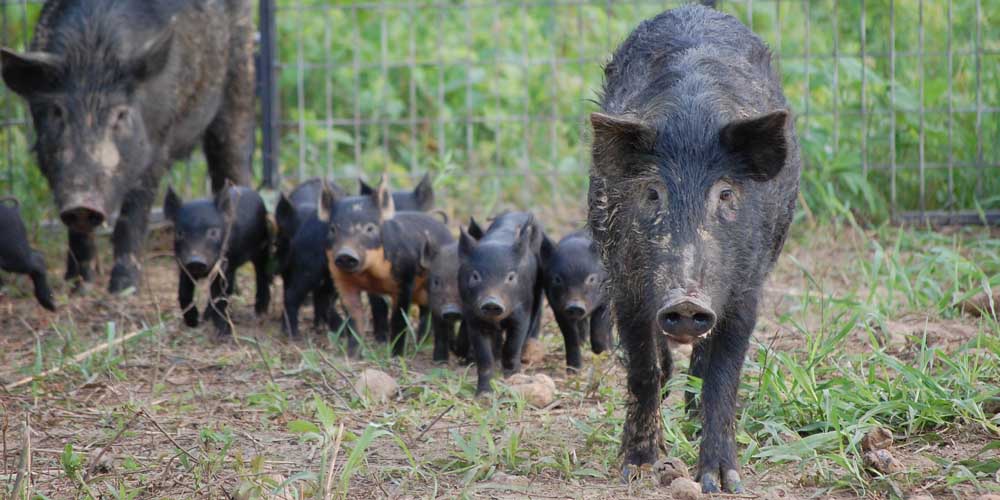Related Stories
Interactions Stories

The Squeal on Pigs
Management of feral pigs, which reproduce two to three times annually, cause millions of dollars in damage to farms and property, and carry disease, is a great challenge. The ability to understand the movement patterns of feral pigs can help state managers mitigate the destruction caused by these swine. Garrett Street, associate professor in the wildlife, fisheries and aquaculture department, is using GPS tracking devices to gain new insights into how feral pigs use the landscape. Street and his team built an enclosure with varied habitats and surveillance cameras, trapped wild pigs, and attached accelerometers and GPS collars to them to record their movements. Accelerometers combined with GPS collars provide more insight into the pigs’ movements than GPS collars alone and can help improve management practices.
2017

What's for Dinner?
Southern aquaculture, especially catfish farming in Mississippi, faces significant challenges from migratory waterbirds, particularly the double-crested cormorant. These birds, attracted by the dense fish populations in aquaculture ponds, cause millions of dollars in losses each year. A study by Dr. Brian Davis and his team found that cormorants consume up to $12 million in catfish annually, and when factoring in bird deterrent costs, the total financial impact is around $64.7 million per year. While various methods, like disrupting bird roosts, have been tried, there is no perfect solution. Research is ongoing, with new methods, such as drones, being explored.
Additionally, a study on scaup ducks found that their impact on fish farms varies with the season, suggesting farmers should focus on bird management during colder months when ducks are more likely to consume fish. Davis emphasizes the need for continuous research and evolving management practices to address these conflicts as the aquaculture industry grows.
2023

Monitoring Resistance
Dr. Dana Morin, a wildlife assistant professor at Mississippi State, is studying the role of wildlife in the spread of antimicrobial resistance (AMR), which makes infections harder to treat. AMR can be transmitted through bacteria, fungi, and other pathogens that evolve resistance to medications. Morin is focusing on how species like black bears, deer, and ducks, with their diverse ecologies and interactions with humans, could spread AMR. She collaborates with Dr. John Brooks from the USDA to analyze bacterial cultures and DNA from animal fecal samples, investigating genes linked to AMR. Additionally, Morin is exploring the use of dung beetles as a cost-effective method for identifying AMR hotspots in the environment.
Her research aims to understand how wildlife movements and human interactions contribute to the spread of AMR, ultimately helping predict and prevent its transmission.